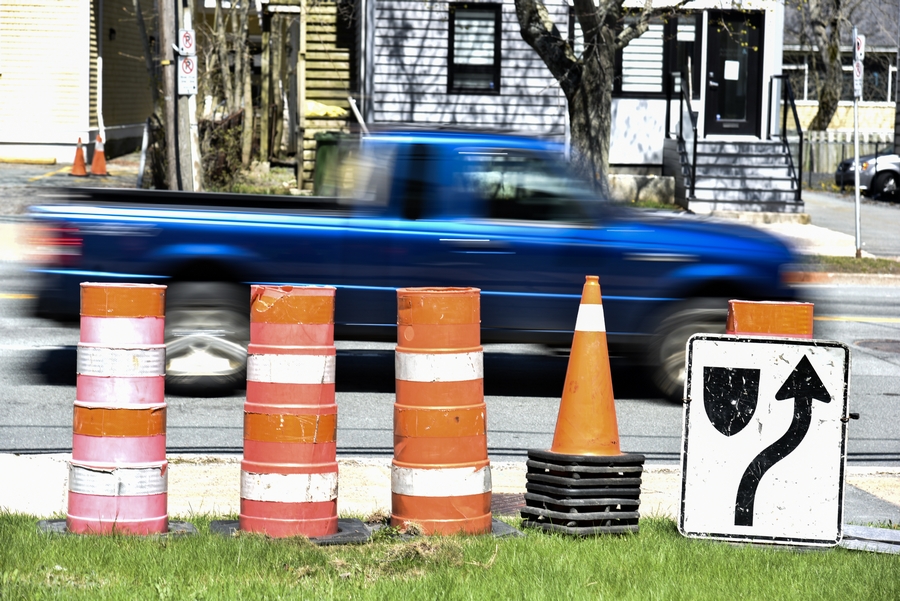By LOUISE COCKRAM
“In the views of your constituents, that road is the most important thing in their lives. They don’t care about what you’re voting on — this big picture of whatever red tape about small business — that road is what they want done,” says Clarrie MacKinnon, former MLA for Pictou East.
Before starting the Off Script project, I assumed that I knew a lot about Nova Scotia politics. But our interviews with MLAs turned much of my existing knowledge on its head as I gained insight into parts of Nova Scotia politics the public doesn’t typically doesn’t get to see.
The MLAs’ preoccupation with roads in their respective constituencies was especially surprising. MLAs have to navigate the tension between local and provincewide issues; the question of whether to devote limited government resources to a particular locality or spread them to the wider community. But the way this tension between local and provincewide concerns plays out in Nova Scotia politics, particularly when it comes to roads, threw me for a loop and demonstrated some important truths about lawmakers in our province.
There is no job description for MLAs. They receive a short orientation when they first arrive at Province House, but the parameters of their job and what they are expected to do on a day-to-day basis is nebulous. In the absence of a clear legislative role, MLAs get bogged down in constituency work, and one of the main demands coming from constituents relates roads.
Charlie Parker, former MLA for Pictou West, explained to us how road repair dominated his day-to-day job as an MLA:
“I would say 80 per cent of my time was spent dealing with, you know, constituents’ concerns, whether they’re —especially in a rural riding that I represented — there’s an awful lot of road issues, rural roads are huge. And, you know, people call; they’re looking for pavement, naturally, they want asphalt paving. There’s only so many roads get paved every year and not all of them get done. But grading or gravelling or ditching or dust control or winter snow-clearing, those calls never end for a rural MLA.”
Parker was far from the only MLA to identify roads as an important issue, Clarrie MacKinnon, former MLA for Pictou East, helped us to better understand the way MLAs relate to road politics in Nova Scotia:
“In a rural constituency, as mine was, one of the most important things was to keep roads in good shape, and our infrastructure in relationship to roads and bridges and guardrails and everything else is not in real good shape in the province of Nova Scotia. So, your role is as a lobbyist.”
So why do MLAs focus on roads? Well, constituents demand it.
“When you’re an MLA, you have to multi-task, especially if you’re a minister and you’re an MLA, and you have a million things to do,” MacKinnon told us.
“But no one thing is more important. In the views of your constituents, that road is the most important thing in their lives. They don’t care about what you’re voting on — this big picture of whatever red tape about small business — that road is what they want done.”
Ramona Jennex explained that constituents demand road repairs for a reason; viable transport links are a lifeline for many Nova Scotian communities with limited public transit:
“In my experience as an MLA, the No. 1 issues Nova Scotians have that they speak to a rural MLA about is the roads,” Jennex explained.
“Because they are so important. Because we don’t have public transportation outside of metro. We’re really lucky in Kings County, we have Kings Transit (that) does the main route, does Wolfville, and you can get from Point A to Point B. But, people live up the mountain and we’ve got a lot of roads in Kings County, and if they’re not maintained, and people’s cars get beat up quite badly.
“So, it’s their investment and it’s their way they get to work. So, that was the biggest concern.”
Roads and road repair are obviously important to Nova Scotians. However, the way road politics plays out is on a micro-local level.
The MLAs we interviewed recalled lobbying for road repairs in their constituency on a piecemeal basis; there was little talk of a strategy for the province as a whole.
Rather than talking about a proactive, big-picture strategy towards road repair in the province — one that might see MLAs working for legislation and programs that would ensure fairness in how road maintenance was prioritized — the approach we heard about was reactive and focused on their constituency.
This leaves an important question: aren’t other people better positioned to take care of road repair at the constituency level? Don’t MLAs have more important things to focus on? Don’t they wield some kind of power bigger than directing a road crew around their riding? We’ll explore this question in future instalments of the Local Xpress op-ed series.
Want the full story? This article is an adapted excerpt from the weekly podcast. Listen to the episode “Roads” and subscribe to the podcast here.





